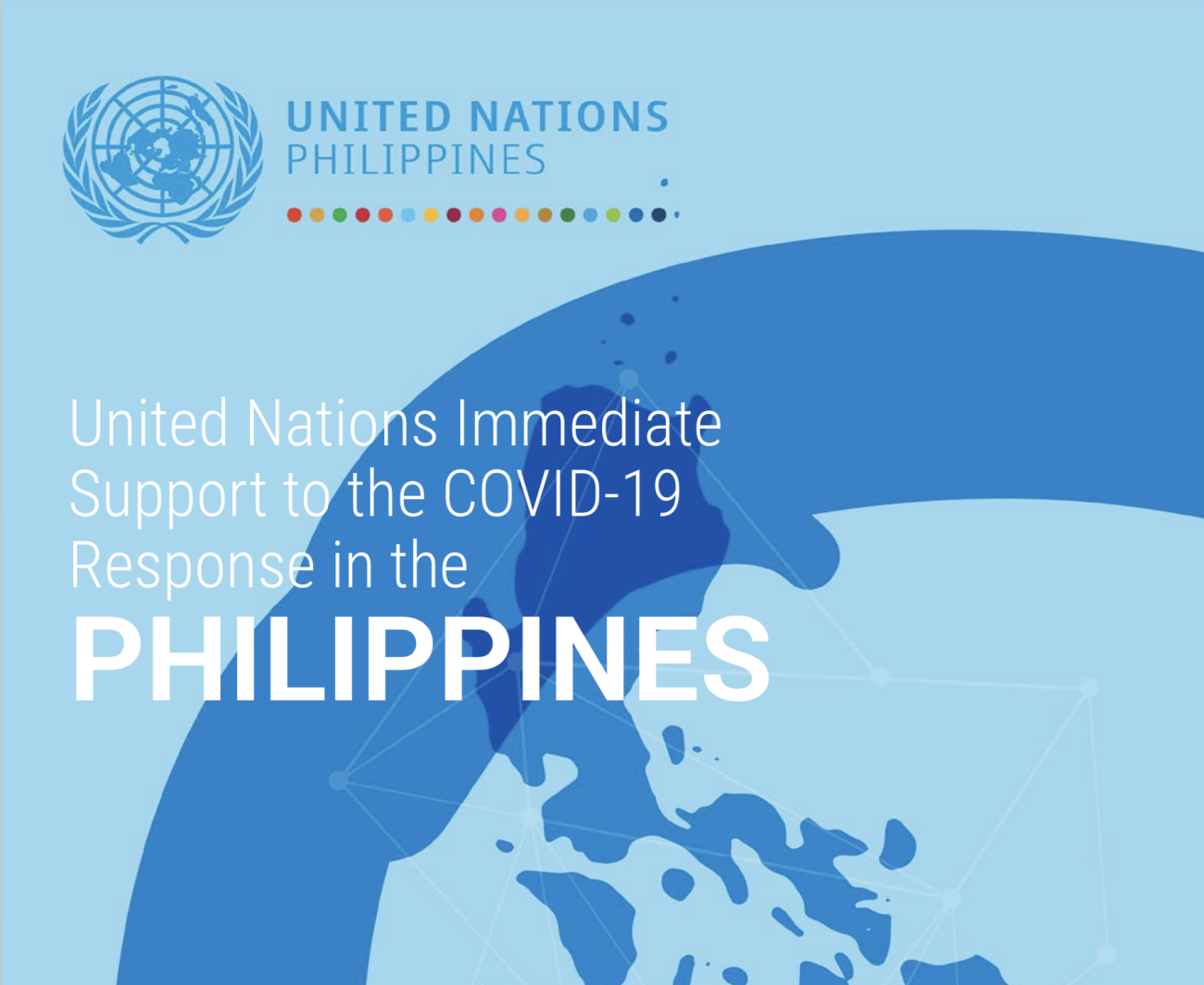UN Philippines reports on its rapid response to COVID-19

Twenty UN entities in the Philippines are implementing some 100 rapid-response activities throughout the country
The United Nations in the Philippines has mobilised rapidly and comprehensively to support its government partners in responding to the COVID-19 pandemic. As part of its broader global response plan, UN efforts in the Philippines have focused on three key objectives. First, to implement a large- scale and multifaceted health response, guided by the World Health Organization (WHO) and the Strategic Preparedness and Response Plan. Second, to support wide-ranging efforts to address the socioeconomic, humanitarian and human rights aspects of the crisis. And third, to ensure a recovery process that builds forward better.
The UN Philippines' report, entitled United Nations Immediate Support to the COVID-19 Response in the Philippines, provides a full, up-to-date picture of the ongoing UN immediate support to the COVID-19 response in the Philippines. It highlights the UN’s substantial contributions to interventions in the health sector, a host of urgent humanitarian activities targeting the most vulnerable, and a multi-sector programme of dynamic development initiatives aimed at assisting the Philippines to recover quickly and sustainably, and emerge more resistant to future shocks.
The UN response to COVID-19 in the Philippines spans the entire country and the full humanitarian-peacebuilding-development nexus. It comprises a current total of 149 interventions led by 20 UN entities. This includes 55 examples of technical assistance such as capacity building, logistics, crisis management, healthcare waste management and communications support; and 27 data management activities and diagnostic assessments of the impact of COVID-19 on specific areas related to health, social protection and economic development.
In addition, it includes 37 examples of in-kind support such as COVID-19 testing, and procurement of medical equipment, personal protective equipment (PPE) and core relief items; 17 policy development initiatives related to educational learning continuity plans, the protection of children from COVID-19, the promotion of green finance in COVID-19 recovery, and other topics; and 13 field operations in areas severely affected by displacement and poverty. Of these, 75 percent are currently ongoing, while 25 percent have already been finalised and represent the UN’s substantial impact particularly in the rapid health and humanitarian response.
Agencies have reported a current total of USD 29 million of secured funding for interventions that specifically address the impact of COVID-19, plus an additional USD 138.84 million combined in loans and grants for two IFAD-funded projects to mitigate the impact of the pandemic on the agriculture and fisheries sectors. This rapid COVID-19 investment is supported by more than 30 resource partners including 16 distinct UN-managed funds, multiple funds from eight Development Assistance Committee members and four private philanthropic donors.
Roughly 60 percent of all interventions are nationwide in scope, while 20 percent focus on the Bangsamoro Autonomous Region in Muslim Mindanao (BARMM) specifically, followed by the National Capital Region (NCR) and various other regions and localities.
This report also underscores the great breadth and depth of UN cooperation with national and subnational authorities in the Philippines. The large majority of interventions have been designed and implemented jointly with government counterparts, and many have benefited from the additional support of national and international NGOs and other stakeholders. To date, the UN has partnered with over 70 distinct government counterparts at the national, regional and local levels in its immediate support to the COVID-19 response.


















